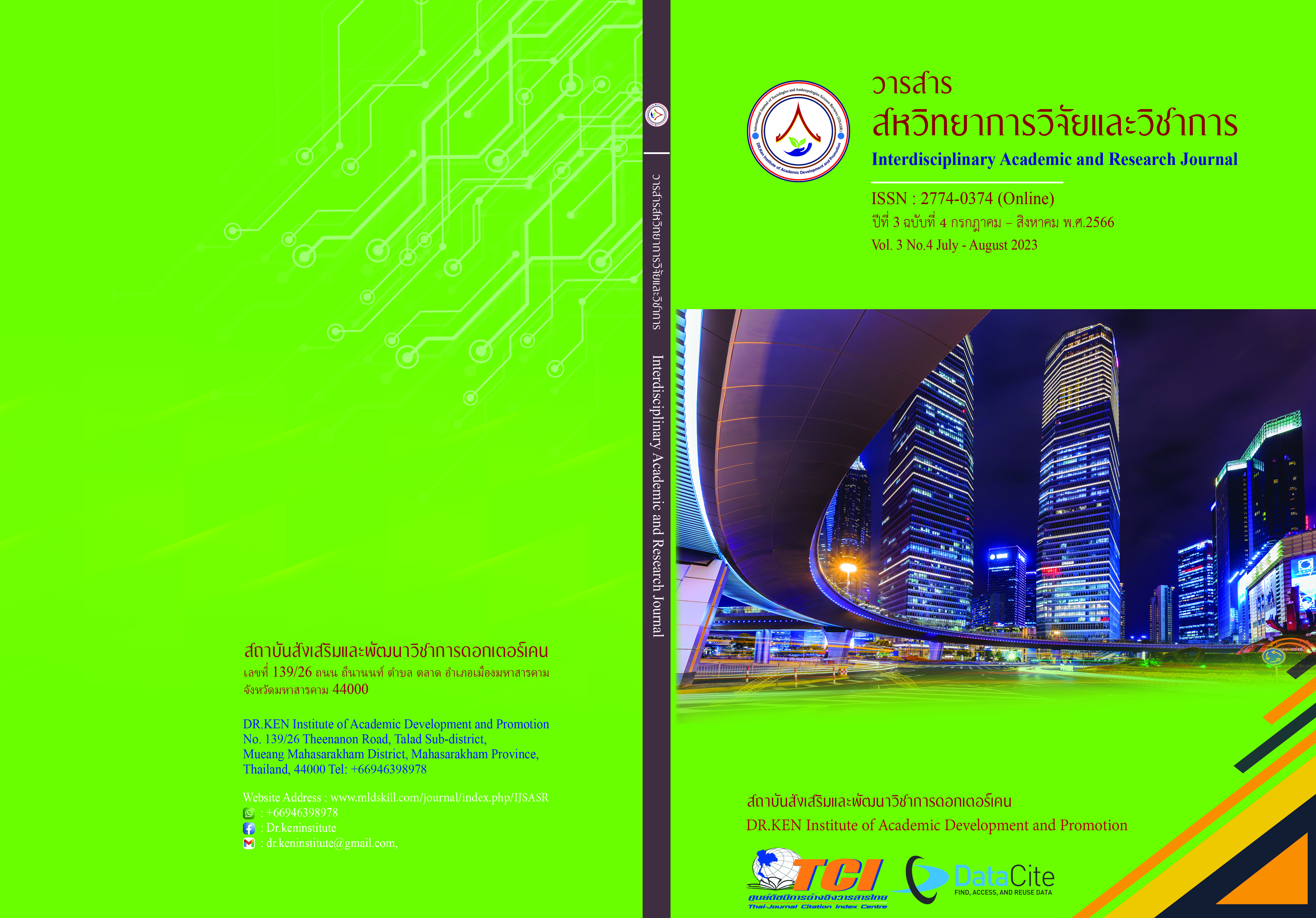Experience Provision through Literature-Based Learning to Promote Body Protection from Sexual Abuse of Young Children
DOI:
https://doi.org/10.14456/iarj.2023.200Keywords:
Literature – Based Learning;, Sexual Abuse; , Young ChildrenAbstract
Using fairy tales to help children enjoy and understand the role of the character, as well as to learn whether the character's actions are good or bad and how they can be used in everyday life, is one way to organize literary experiences for early childhood education. Because children can read aloud to teachers or peers and because the literature uses simple language, it is easy for young readers to understand. This study aimed to investigate how providing literature-based learning experiences can protect young children's bodies from sexual abuse. The target group consisted of fifteen young children enrolled in the Ramkhamhaeng University Demonstration School's kindergarten level 2, semester 2, academic year 2022 (Elementary Department). 24 lesson plans on literature-based learning experiences for young children and an assessment form on young children's body protection capability from sexual abuse were the study's tools. The mean and standard deviation were used to analyze the data. Content Analysis was used for the analysis of qualitative data. According to the results, young children who took part in the literature-based learning experience provision scored higher on the mean scale—10.20—than those who did not. Thus, the provision of literature-based learning experiences helped shield young children's bodies from sexual abuse. It was concluded that Higher mean scores indicate that involving young children in literature-based learning experiences greatly improves their capacity to identify and prevent sexual abuse. This emphasizes how crucial it is to use these kinds of educational interventions to protect kids' welfare and foster a safer atmosphere.
References
กระทรวงศึกษาธิการ. (2560). หลักสูตรการศึกษาปฐมวัย พุทธศักราช 2560. กรุงเทพมหานคร: โรงพิมพ์ คุรุสภาลาดพร้าว.
จันทรา ภู่เงิน. (2549). การศึกษาวรรณกรรมสำหรับเด็กของ ปรีดา ปัญญาจันทร์. สารนิพนธ์ การศึกษาบัณฑิต สาขาภาษาไทย, มหาวิทยาลัยศรีนครินทรวิโรฒ.
นฤมล เนียมหอม. (2559). การจัดประสบการณ์โดยใช้วรรณกรรมเป็นฐาน. ฐานข้อมูลด้านการศึกษาปฐมวัย. โรงเรียนทุ่งมหาเมฆ. Retrieved on September 10, 2022, from: http://www.nareumon.com
แอมเนสตี้ อินเตอร์เนชั่นแนล ประเทศไทย. (2564). ละเมิดสิทธิหนูทำไม เสียงเล็ก ๆ ที่ถูกมองข้ามในสังคมไทย. Retrieved on September 10, 2022, from: https://www.amnesty.or.th/latest/blog/865/
Rothlein, L., & Meinbach, A. M. (1997). Legacies: Using Children’s Literature in the Classroom. (2nd ed.). New York: Harper Collins.
UNICEF. (2018). The United Nations Convention on the Rights of the Child. United Kingdom: UNICEF.
Uswatul, H., & Suparno, S., (2018). Method of Sex Learning for Children 5-6 years. Advances in Social Science, Education, and Humanities Research, Proceedings of the International Conference on Special and Inclusive Education (ICSIE 2018). DOI: 10.2991/icsie-18.2019.60
Downloads
Published
How to Cite
Issue
Section
License
Copyright (c) 2023 Walailuck Senagoon, Pattamavadi Lehmongkol

This work is licensed under a Creative Commons Attribution-NonCommercial-NoDerivatives 4.0 International License.
Copyright on any article in the Interdisciplinary Academic and Research Journal is retained by the author(s) under the under the Creative Commons Attribution-NonCommercial-NoDerivatives 4.0 International License. Permission to use text, content, images, etc. of publication. Any user to read, download, copy, distribute, print, search, or link to the full texts of articles, crawl them for indexing, pass them as data to software, or use them for any other lawful purpose. But do not use it for commercial use or with the intent to benefit any business.
















.png)


